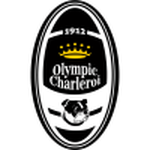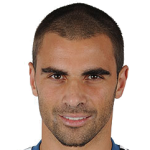| Coach | NA |
| Venue | Stade de la Neuville |
Olympic Charleroi predictions
Predictions for Olympic Charleroi: See upcoming and historic predictions for Olympic Charleroi below.
Disclaimer: Past performance does not guarantee future results. Betting involves risk; only wager what you can afford to lose. Always gamble responsibly.
Olympic Charleroi Players
| Players | Position |
|---|---|

Ousmane Sow
France
|
Attacker |
| Attacker | |

Franck Rivollier Nkolo
France
|
Attacker |

Kazim Can Kahya
Belgium
|
Attacker |
Olympic Charleroi latest transfers
| Date | Player | From | To | Price |
|---|---|---|---|---|
| 2011-01-01 | F. Porco | Olympic Charleroi | PAC Buzet | € Free |
About Olympic Charleroi
Olympic Club Charleroi Farciennes, commonly known as Olympic Charleroi, is a historic football club based in Charleroi, Belgium. Founded in 1911, the club is one of the oldest in the country, boasting a rich history that spans over a century.
The club's emblem, a roaring lion, symbolizes its fierce competitive spirit. Olympic Charleroi's colors, black and white, are a nod to the industrial heritage of Charleroi, a city known for its coal mining and steel manufacturing. The club's nickname, "Les Dogues" (The Mastiffs), further emphasizes their tenacity and determination on the pitch.
Olympic Charleroi spent most of its early years in the lower tiers of Belgian football. However, the club experienced a golden era in the 1940s and 1950s, when it competed in the top flight of Belgian football, the Belgian First Division. During this period, Olympic Charleroi enjoyed considerable success, finishing as high as third in the league and reaching the final of the Belgian Cup.
Despite facing financial difficulties and relegation in the subsequent decades, Olympic Charleroi has remained a significant presence in Belgian football. The club has produced several notable players who have gone on to represent Belgium at the international level, including Michel Preud'homme, a legendary goalkeeper who is widely regarded as one of the greatest Belgian footballers of all time.
In 2017, Olympic Charleroi merged with RJS Heppignies-Lambusart-Fleurus to form Olympic Club Charleroi Farciennes. The merger was a strategic move aimed at consolidating resources and strengthening the club's position in Belgian football. Today, the club competes in the Belgian National Division 1, the third tier of Belgian football.
Olympic Charleroi's home ground is the Stade de la Neuville, a stadium with a capacity of 12,000. Known for its passionate and loyal fan base, the club continues to play a crucial role in the local community, providing a platform for young talents and promoting the values of teamwork, respect, and fair play.
Throughout its history, Olympic Charleroi has faced numerous challenges and obstacles. However, the club's resilience and commitment to its values have ensured its survival and relevance in Belgian football. As Olympic Charleroi looks to the future, it remains committed to its mission of nurturing local talent and contributing to the development of football in Belgium.

















